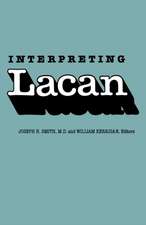Psychology's Ghosts: The Crisis in the Profession and the Way Back
Autor Jerome Kaganen Limba Engleză Hardback – 27 mar 2012
A leading psychologist takes a hard look at his profession today and argues for important changes in practices and attitudes
This book is the product of years of thought and a profound concern for the state of contemporary psychology. Jerome Kagan, a theorist and leading researcher, examines popular practices and assumptions held by many psychologists. He uncovers a variety of problems that, troublingly, are largely ignored by investigators and clinicians. Yet solutions are available, Kagan maintains, and his reasoned suggestions point the way to a better understanding of the mind and mental illness.
Kagan identifies four problems in contemporary psychology: the indifference to the setting in which observations are gathered, including the age, class, and cultural background of participants and the procedure that provides the evidence (he questions, for example, the assumption that similar verbal reports of well-being reflect similar psychological states); the habit of basing inferences on single measures rather than patterns of measures (even though every action, reply, or biological response can result from more than one set of conditions); the defining of mental illnesses by symptoms independent of their origin; and the treatment of mental disorders with drugs and forms of psychotherapy that are nonspecific to the diagnosed illness. The author's candid discussion will inspire the debate that is needed in a discipline seeking to fulfill its promises.
This book is the product of years of thought and a profound concern for the state of contemporary psychology. Jerome Kagan, a theorist and leading researcher, examines popular practices and assumptions held by many psychologists. He uncovers a variety of problems that, troublingly, are largely ignored by investigators and clinicians. Yet solutions are available, Kagan maintains, and his reasoned suggestions point the way to a better understanding of the mind and mental illness.
Kagan identifies four problems in contemporary psychology: the indifference to the setting in which observations are gathered, including the age, class, and cultural background of participants and the procedure that provides the evidence (he questions, for example, the assumption that similar verbal reports of well-being reflect similar psychological states); the habit of basing inferences on single measures rather than patterns of measures (even though every action, reply, or biological response can result from more than one set of conditions); the defining of mental illnesses by symptoms independent of their origin; and the treatment of mental disorders with drugs and forms of psychotherapy that are nonspecific to the diagnosed illness. The author's candid discussion will inspire the debate that is needed in a discipline seeking to fulfill its promises.
Preț: 435.20 lei
Preț vechi: 565.20 lei
-23% Nou
Puncte Express: 653
Preț estimativ în valută:
83.29€ • 86.04$ • 69.32£
83.29€ • 86.04$ • 69.32£
Carte tipărită la comandă
Livrare economică 25 martie-08 aprilie
Preluare comenzi: 021 569.72.76
Specificații
ISBN-13: 9780300178685
ISBN-10: 0300178689
Pagini: 416
Dimensiuni: 140 x 210 x 29 mm
Greutate: 0.68 kg
Editura: Yale University Press
Colecția Yale University Press
ISBN-10: 0300178689
Pagini: 416
Dimensiuni: 140 x 210 x 29 mm
Greutate: 0.68 kg
Editura: Yale University Press
Colecția Yale University Press
Notă biografică
Jerome Kagan is Professor of Psychology Emeritus, Harvard University, where he was co-director of the Mind/Brain Behavior Interfaculty Initiative. He is the author of nearly 400 papers and numerous books. He lives in Belmont, MA.
Recenzii
"Psychology’s Ghosts can be enjoyed by both experts and lay readers. For the latter, including persons suffering from some form of mental illness, the book represents a reliable and user friendly source of information about the present status of psychological and psychiatric research and clinical practice. For the expert it provides a compass for rethinking one’s own practice and research and for reorganizing this more consistently around the principle of beneficence."—Liana Giorgi, New York Journal of Books
“With its detailed reassessments of well-entrenched principles (including John Bowlby’s theory that the quality of the attachment between infant and mother has a profound and enduring impact on every child’s future), Psychology’s Ghosts should command the interest of anyone interested in the field.”—Glenn Altschuler, The Jerusalem Post
“He makes his case persuasively and readably, with extensive empirical support. For a public enamored of looking inward to genes, brain circuits and medications to find solutions to the problems that plague us privately and politically, the message that most of those solutions require us to look outward—to culture, class and context—can't be repeated often enough.”—Carol Tavris, Wall Street Journal
"Kagan is thorough and precise in this remarkable book. He has a chapter of positive recommendations, but as he notes, he’s not the first to point out these limitations, which have so far mostly been ignored. What he’s basically calling for is some humility, and acknowledgement of complexity, differences and connections."—Bill Kowinski, North Cost Journal
"If anyone has the stature and wisdom to shake a finger at contemporary psychology and say "shame on you," it is Kagan . . . Though not all will agree with his contentions, few can argue with his intentions."—R.E. Osborne, Choice
"Jerome Kagan's own studies of human temperament from infancy to adulthood constitute a masterpiece of research in psychology, and his new book is crammed with fascinating information gleaned from a lifetime's acquaintance with the lab and the literature. The author is immensely informed, and fills his pages with references to myriad facets of Western culture. Slogging through Psychology's Ghosts can be hard work in places, but in the end the slog is well worth the effort."—Barry Gault, Commonweal
“An intellectual tour de force”: “Kagan has written a provocative and challenging book. . . . Psychology’s Ghosts . . . provide[s] a template for students and the profession to carefully consider whether our science matches our clinical practice. This consideration, in turn, provides a moment to determine whether we as psychologists feel a moral obligation to match science to practice for those we so zealously purport to serve.”—Robert G. Frank, PsycCRITIQUES, American Psychological Association





















